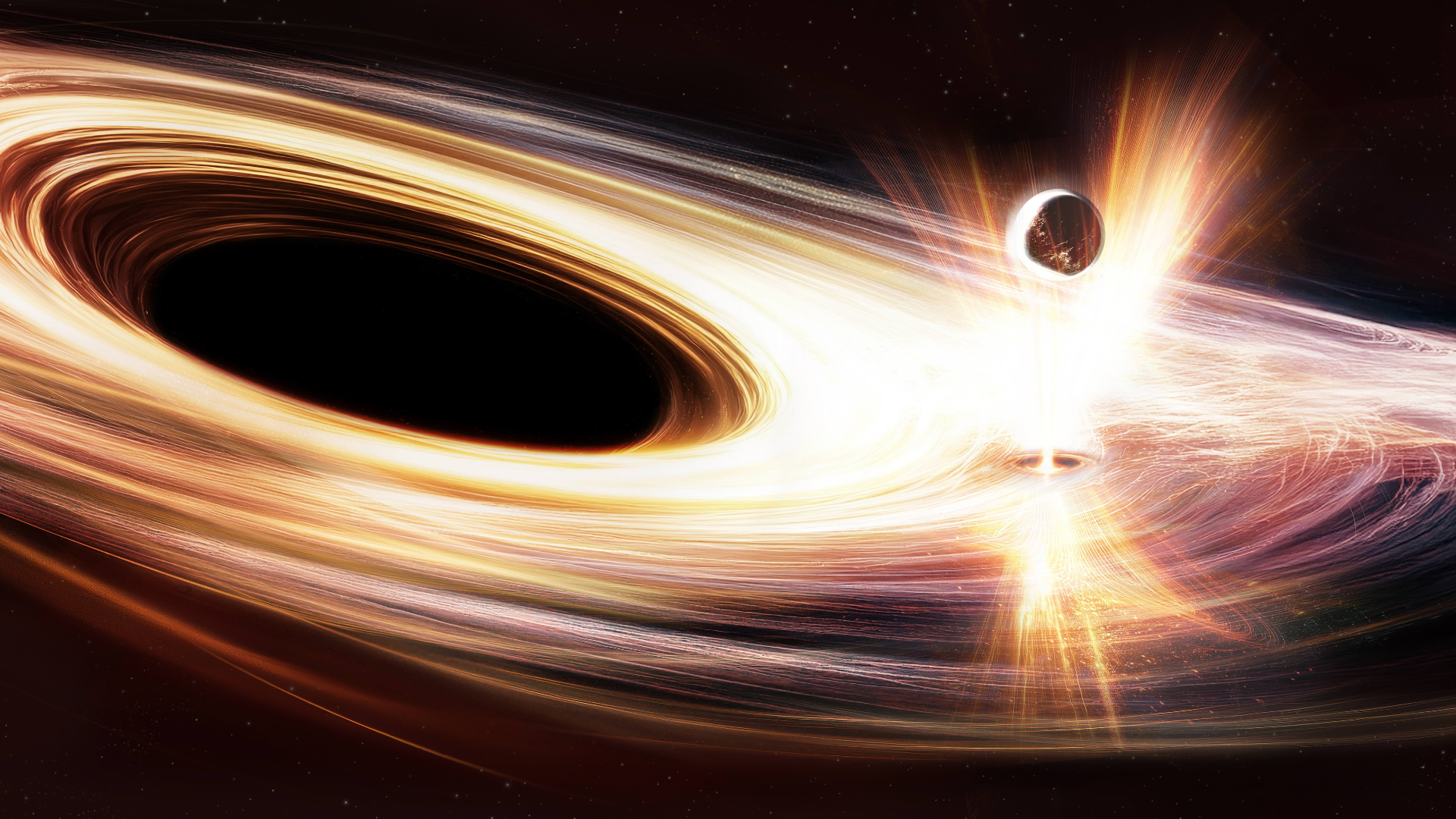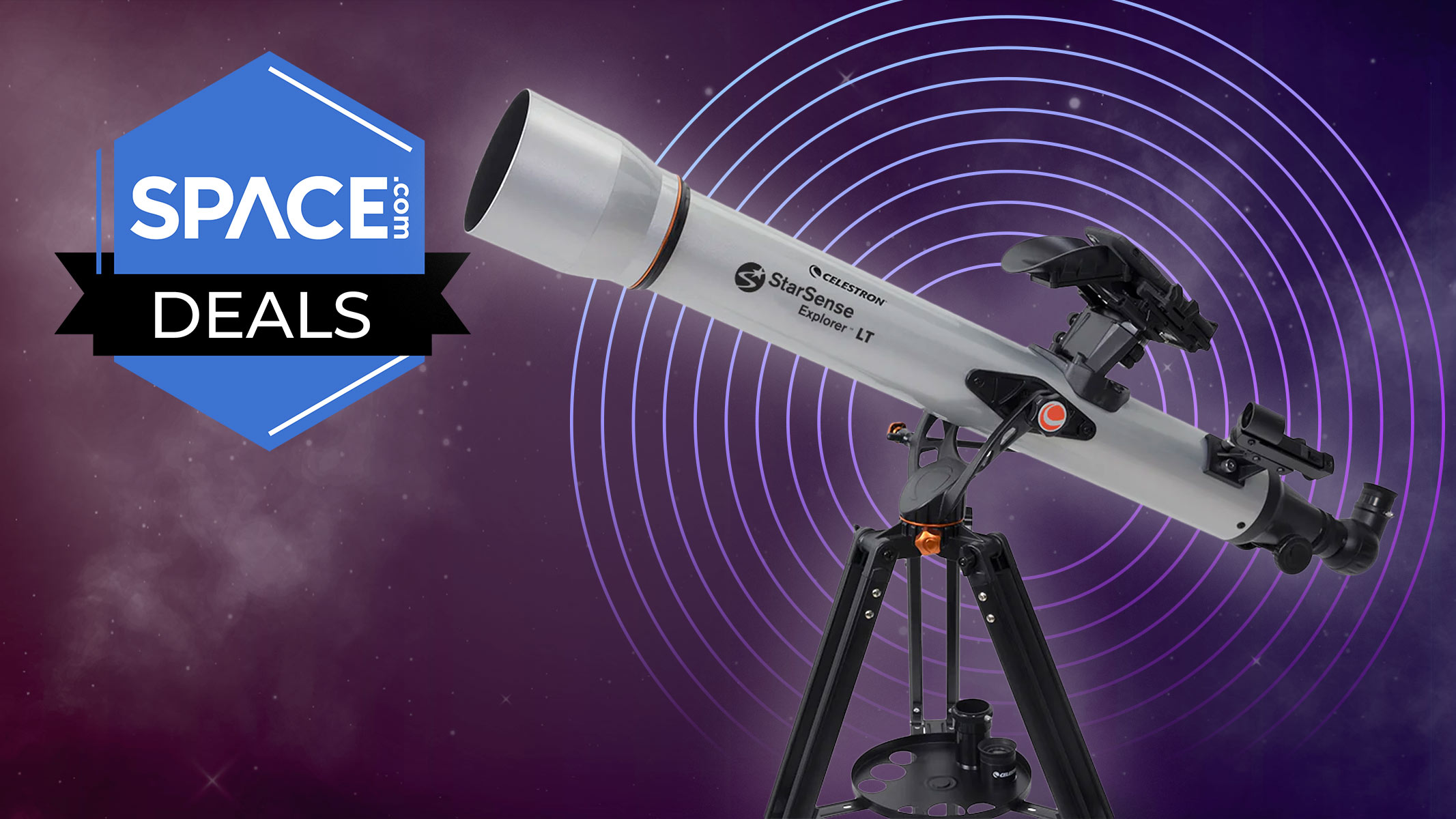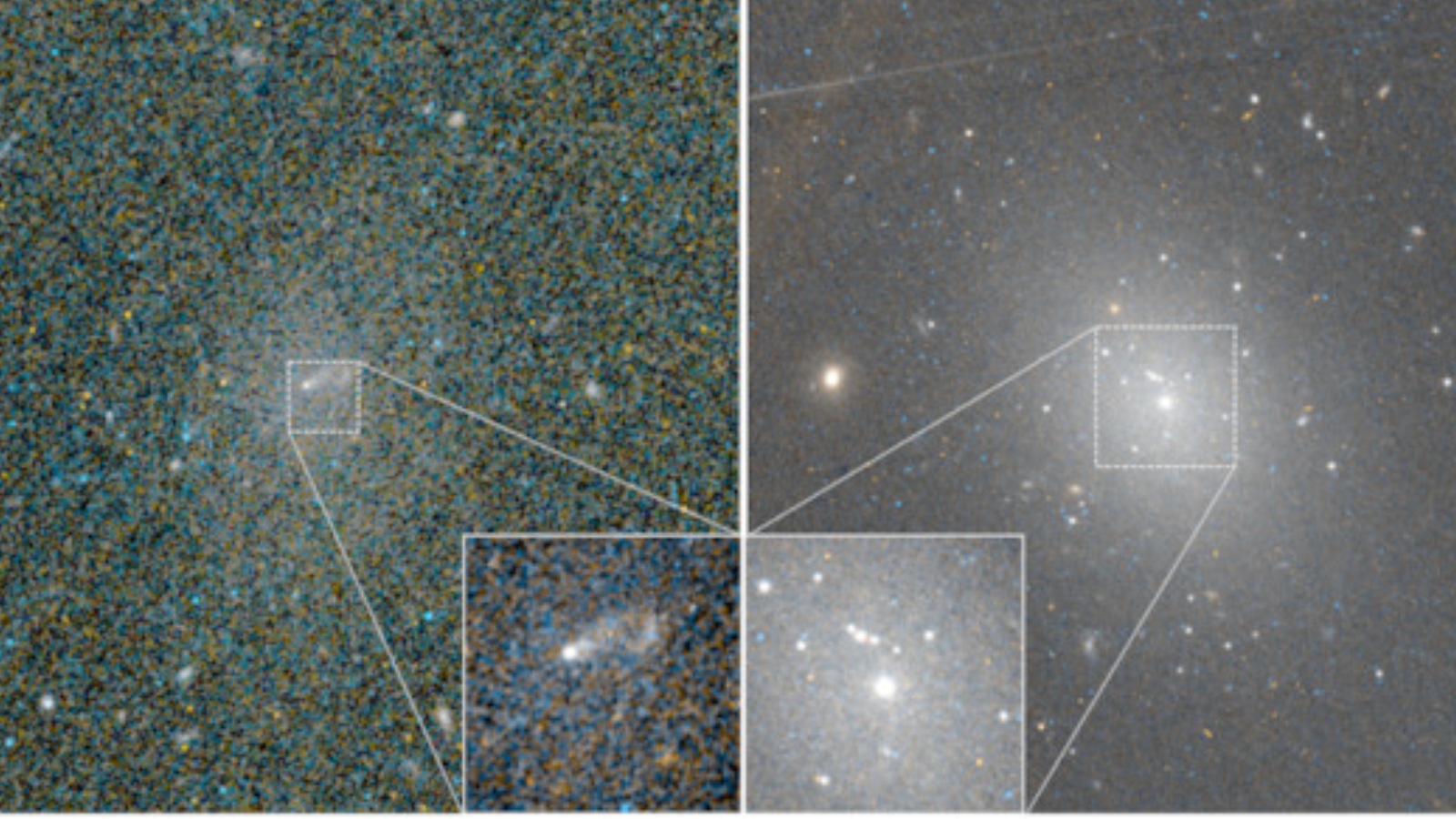Photos: Herschel Space Observatory's Amazing Infrared Images
Herschel Space Observatory and Vela C
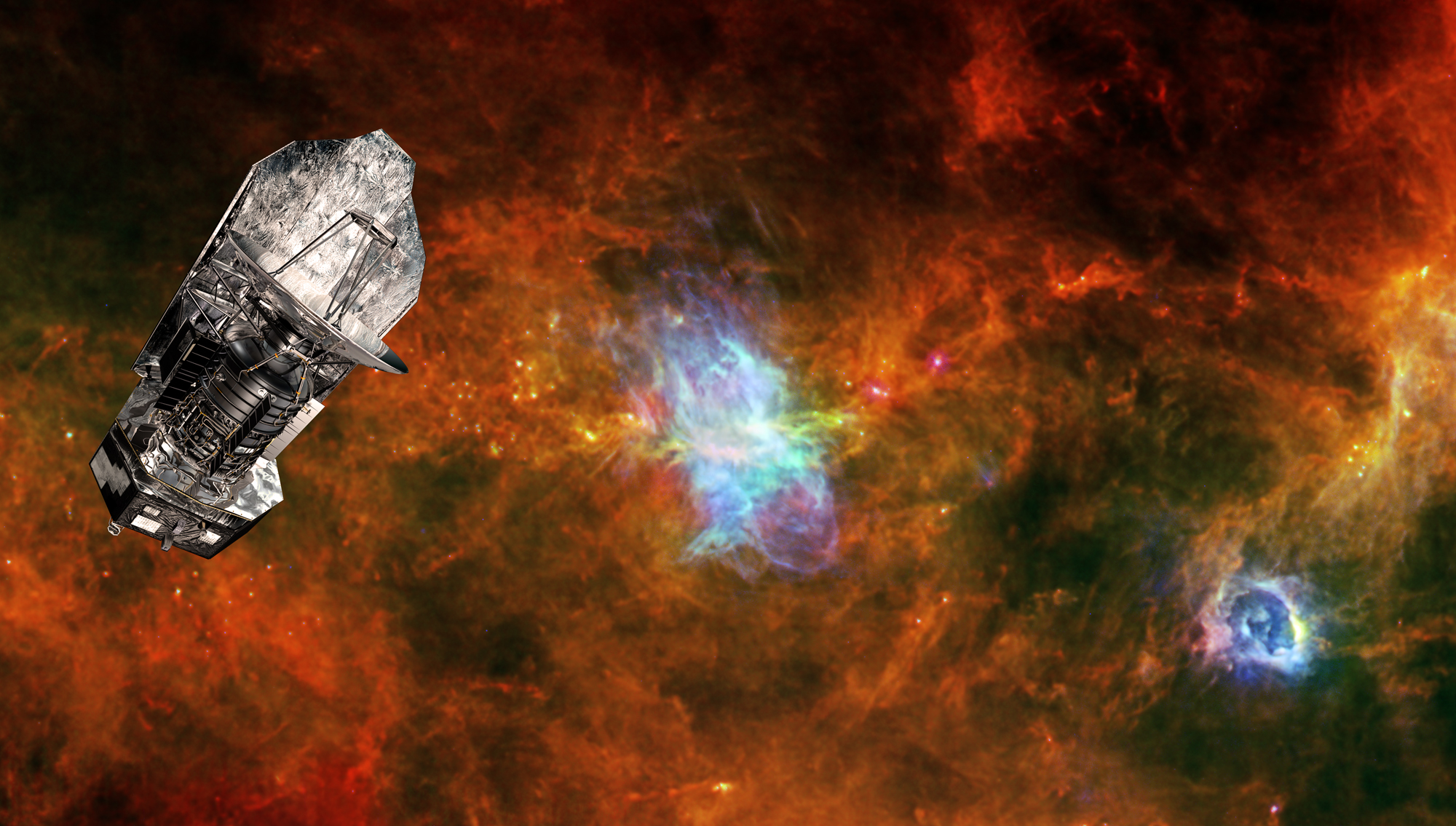
This artist's illustration shows the European Space Agency's infrared Herschel Space Obsevatory set against a background image of the Vela C star-forming region. The space telescope launched in 2009 and ended its mission in 2013. See amazing photos and images from the Herschel Space Observatory's prolific mission to observe the universe.
Herschel Reference Survey
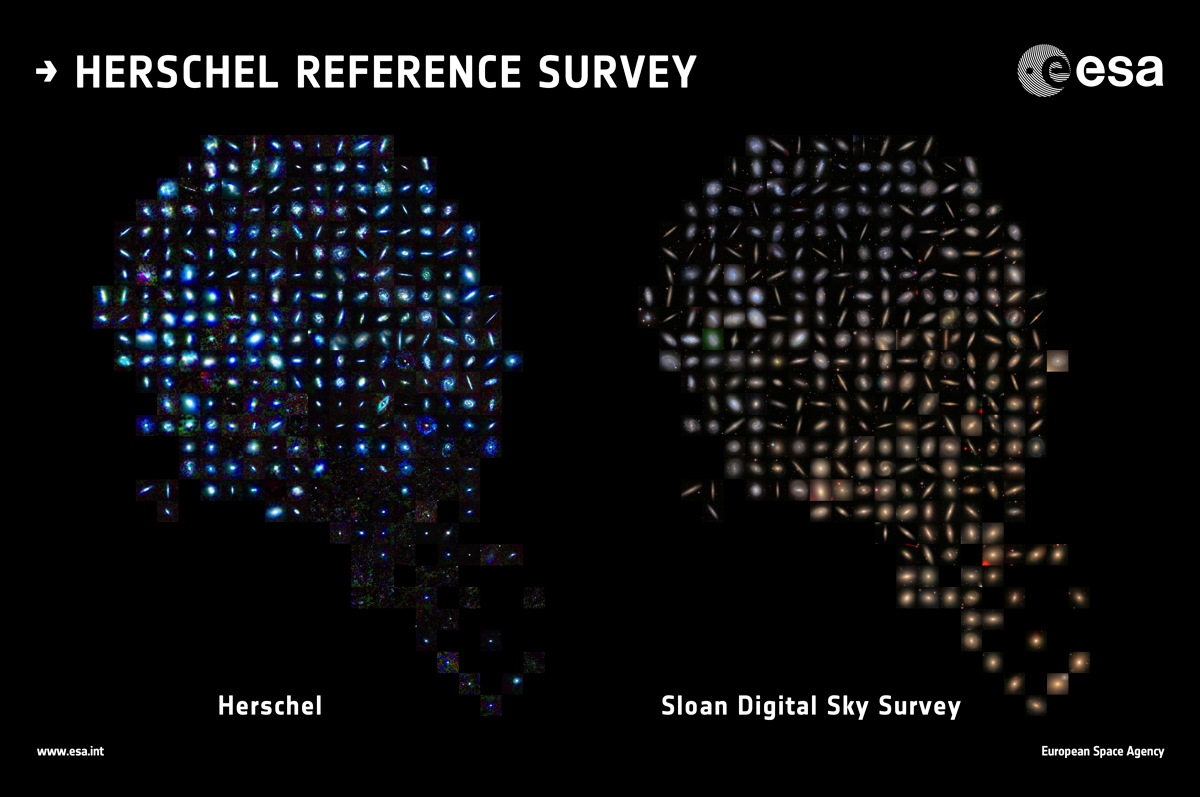
A sample of galaxies studied by the ESA's Herschel space observatory. Images on the left are shown in the infrared and submillimeter wavelengths. Images on the right, taken by the Sloan Digital Sky Survey (SDSS) show the galaxies in visible wavelengths. [Read the Full Story Behind This Photo]
Herschel Survey in Visible Light
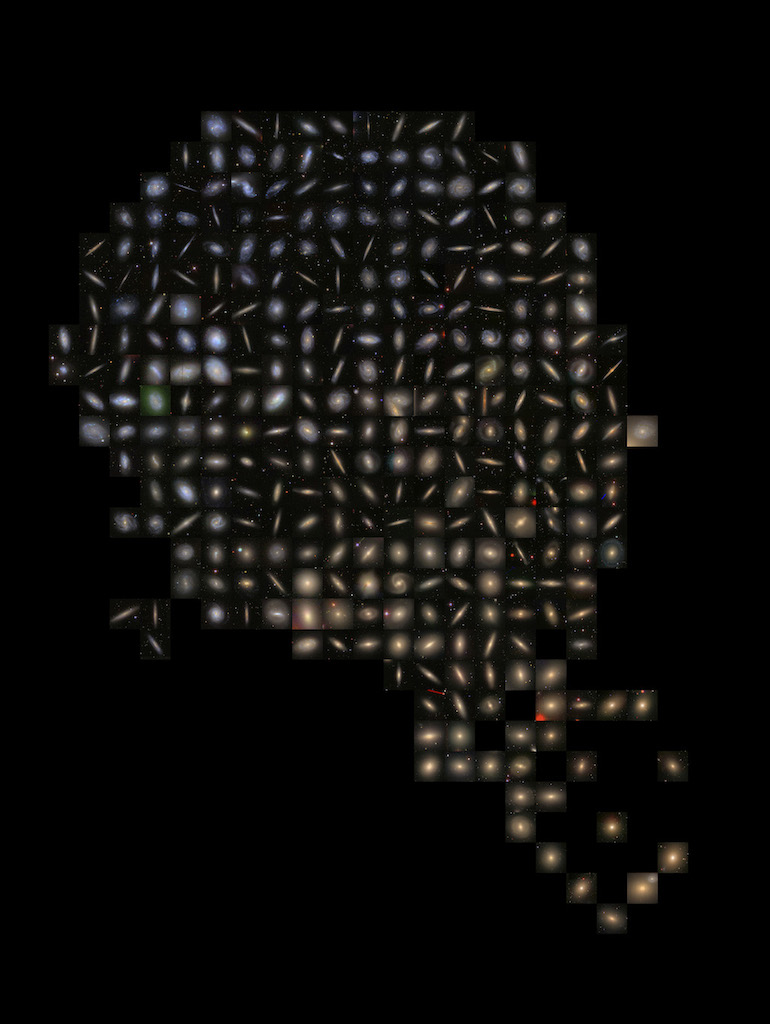
Collage of galaxies included in the Herschel Reference Survey as seen at visible wavelengths in images obtained by the Sloan Digital Sky Survey. [Read the Full Story Behind This Photo]
Herschel Survey in Infrared
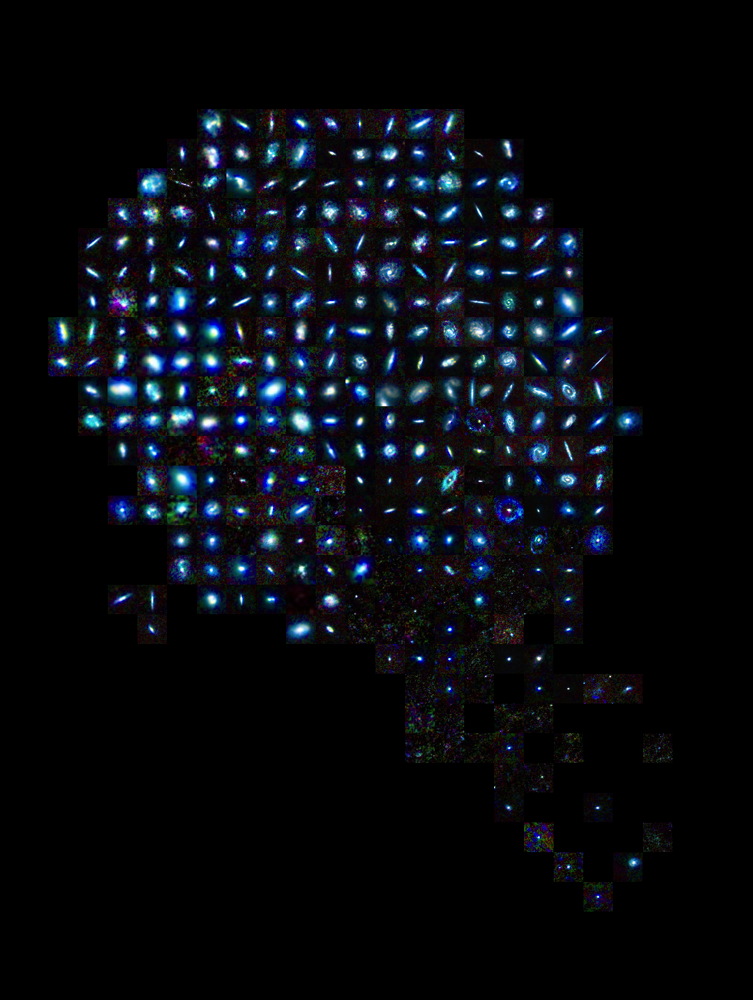
Collage of galaxies included in the Herschel Reference Survey, the largest census of cosmic dust in the local Universe. [Read the Full Story Behind This Photo]
Herschel Observatory - Molecular Gas Outflows
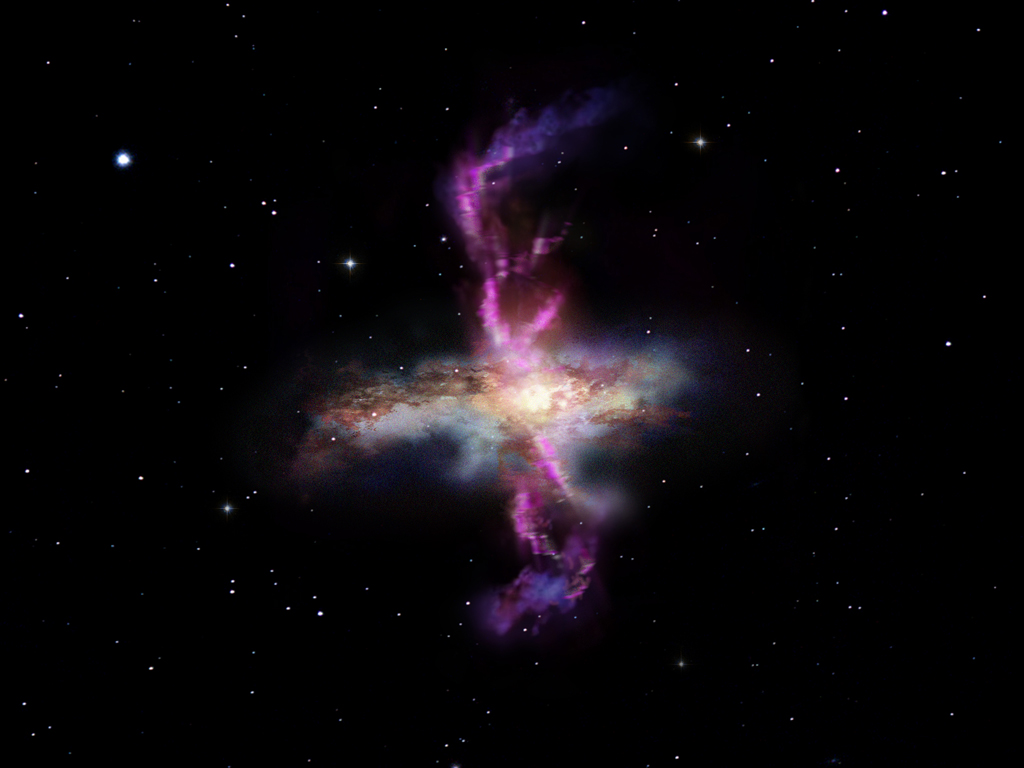
An artist's impression showing a galaxy with a molecular outflow. Herschel Space Observatory's detection of outflows powerful enough to strip galaxies of their molecular gas reservoir represents solid evidence in support of the merger-driven scenario for the formation of elliptical galaxies.
A Cradle of Stars
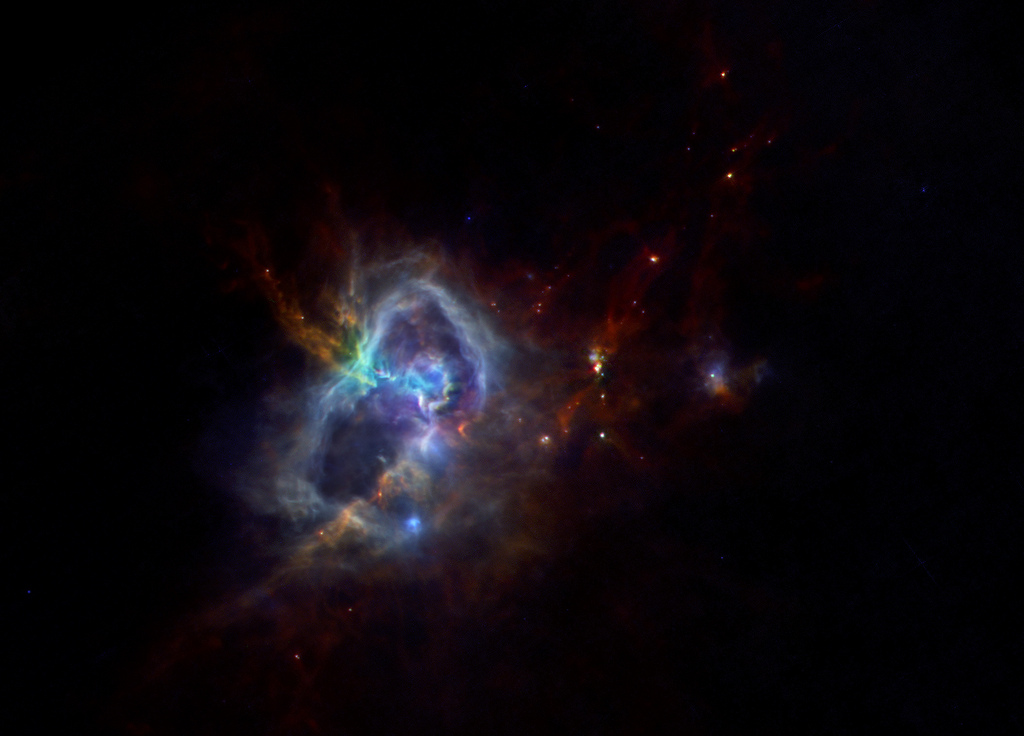
Six hundred newly forming stars are crowded into intricate filaments of gas and dust that makes up this stellar nursery, seen for the first time by ESA’s Herschel space observatory.
Orion Nebula Seen by Herschel and Spitzer
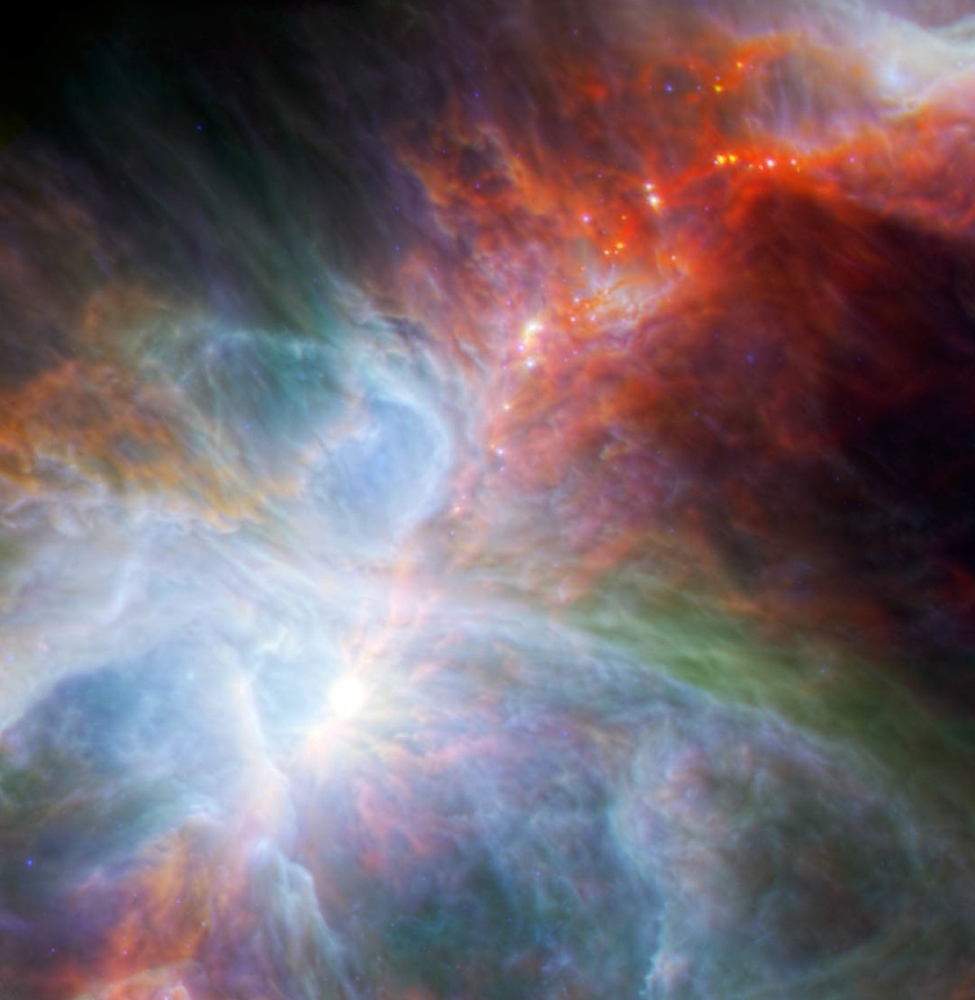
This new view of the Orion Nebula shows embryonic stars within extensive gas and dust clouds. Combining far-infrared observations from the Herschel Space Observatory and mid-infrared observations from NASA's Spitzer Space Telescope, the image shows newly forming stars surrounded by remnant gas and dust in the form of discs and larger envelopes. Image released Feb. 29, 2012
Get the Space.com Newsletter
Breaking space news, the latest updates on rocket launches, skywatching events and more!
Warped Galactic Ring
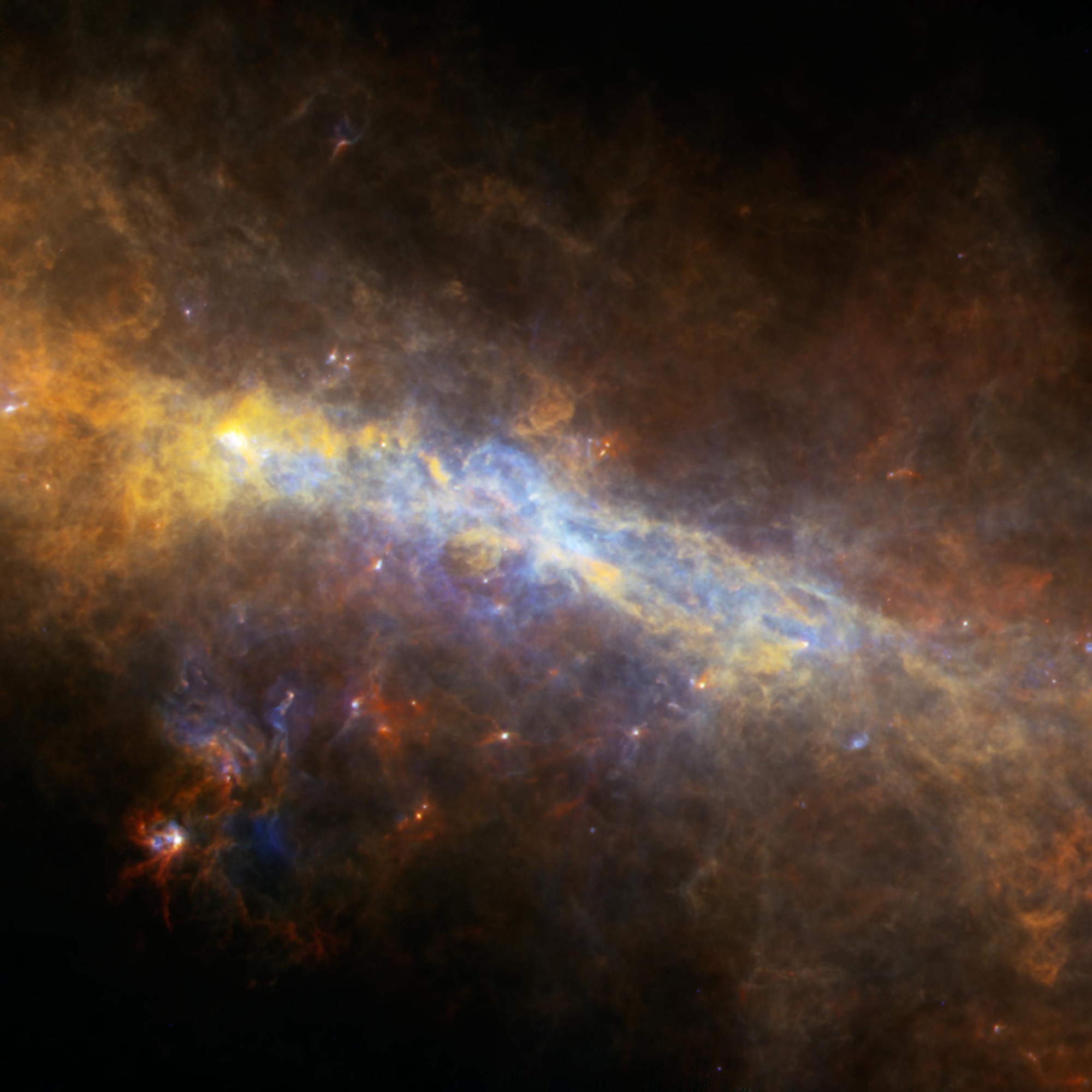
Astronomers using the infrared Herschel Space Observatory have discovered that this suspected ring of gas at the center of our Milky Way is warped for reasons they cannot explain.
IC5146 Interstellar Cloud
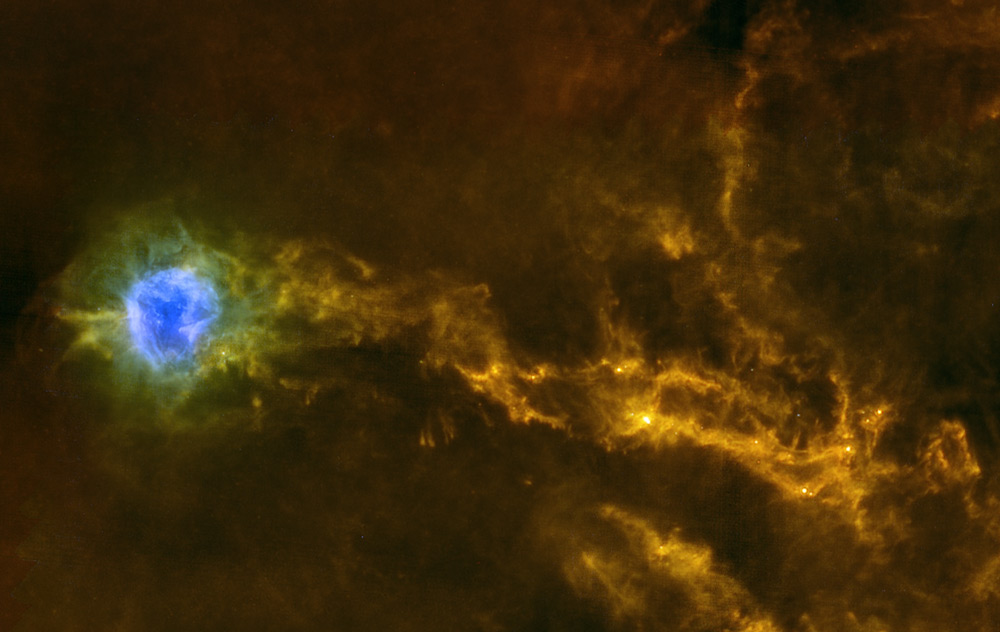
Dense filaments of gas in the IC5146 interstellar cloud, in an infrared photo from ESA’s Herschel space observatory.
Fomalhaut and Dust Disc
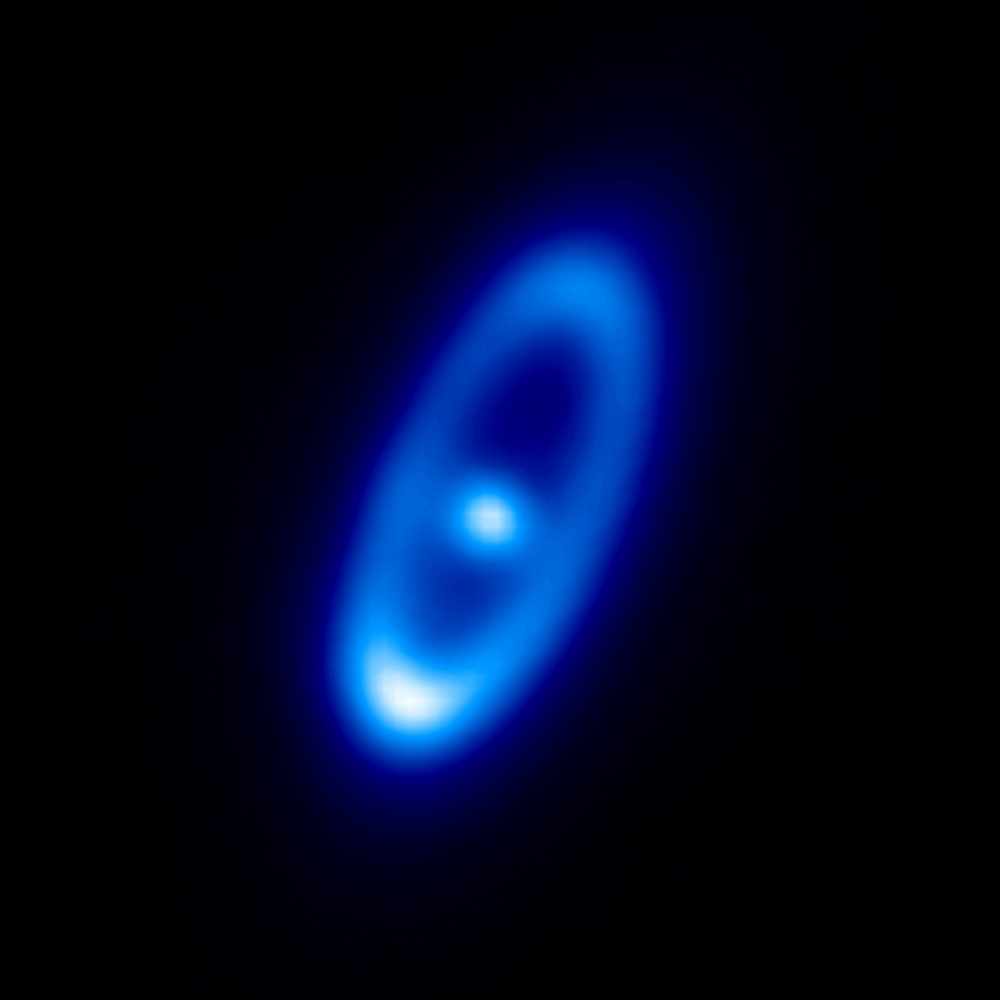
This infrared image shows the young star Fomalhaut and its surrounding dust disc it as seen with ESA's Herschel space observatory. Astronomers suspect Fomalhaut's debris disc stems from dust particles created by prolific comet collisions, with an average rate of 2,000 daily crashes between comets of 1 kilometer across.
Herschel’s Three-Color View of Asteroid Apophis

ESA’s Herschel Space Observatory captured asteroid Apophis in its field of view during the approach to Earth on January, 5-6, 2013. This image shows the asteroid in Herschel’s three PACS wavelengths: 70, 100 and 160 microns.
Join our Space Forums to keep talking space on the latest missions, night sky and more! And if you have a news tip, correction or comment, let us know at: community@space.com.

Space.com is the premier source of space exploration, innovation and astronomy news, chronicling (and celebrating) humanity's ongoing expansion across the final frontier. Originally founded in 1999, Space.com is, and always has been, the passion of writers and editors who are space fans and also trained journalists. Our current news team consists of Editor-in-Chief Tariq Malik; Editor Hanneke Weitering, Senior Space Writer Mike Wall; Senior Writer Meghan Bartels; Senior Writer Chelsea Gohd, Senior Writer Tereza Pultarova and Staff Writer Alexander Cox, focusing on e-commerce. Senior Producer Steve Spaleta oversees our space videos, with Diana Whitcroft as our Social Media Editor.
